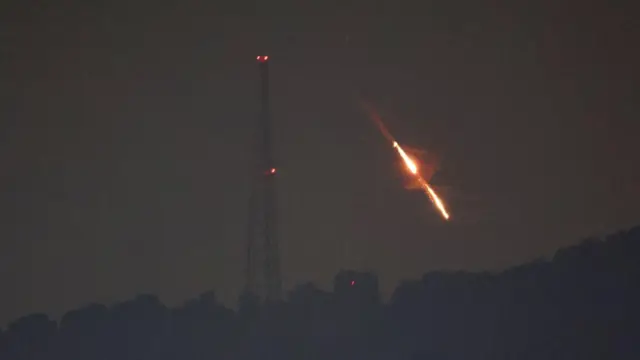UN Security Council to hold emergency meetingpublished at 04:31 BST 14 April 2024
 Image source, Getty Images
Image source, Getty ImagesThe UN Security Council will convene on Sunday for an emergency meeting over Iran's drone and missile attack on Israel, the body's president has said.
The meeting was requested by Israel, who wrote in a letter to the council's president, Vanessa Frazier, that the attacks "pose a grave threat to international peace and security".
The letter accuses Iran of violating its international obligations and of being "the architect of instability for years" through its support for Hamas in Gaza, Hezbollah in Lebanon and the Houthis in Yemen.
"The gravity and volume of the attacks are unprecedented," the letter adds, "and are a flagrant violation of Israel's sovereignty, of international law, and of Security Council resolutions."
It asks the Security Council to designate the Islamic Revolutionary Guard Corps - the primary branch of the Iranian armed forces - as a terrorist organisation.
In a separate letter to Frazier, Iran defended itself, saying it acted in "self-defence as outlined in Article 51 of the Charter of the United Nations, and in response to the Israel's recurring military aggression".
The emergency meeting is scheduled for 16:00 EST (21:00 BST).





